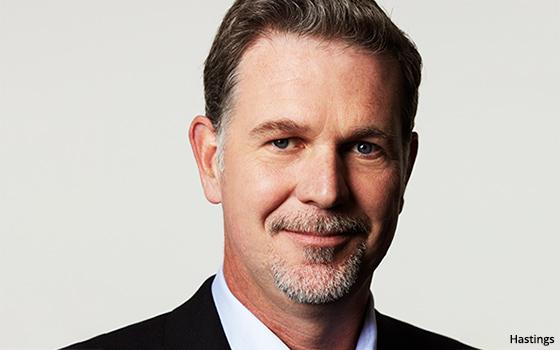
During Netflix’s Q1 earnings report, its top executives
publicly acknowledged the company’s tests geared to reducing unauthorized password sharing, but strived to downplay any perception that this represents a crackdown.
As reported last month, Netflix is now testing a combination warning/signup system
targeting users who appear to be outside of a legitimate subscriber’s home or family members, and encouraging them to click a function to purchase their own accounts. Those reports were followed
by an unsurprising flurry of concerned social media posts by Netflix fans.
During the Q1 earnings Q&A session, Fidelity’s Nidhi Gupta asked about the size of the revenue opportunity
in limiting account sharing and why this might be considered the right time to “start tightening the screws.”
advertisement
advertisement
Greg Peters, Netflix’s chief operating and chief product
officer, stressed that the company strives to maximize its accessibility by offering plans with differing features and price points to meet customers’ differing needs, including across
countries, but that it also wants to be “good at making sure that the people who are [accessing] a Netflix account… are the ones that are authorized to do so.”
“That’s what this sort of line of testing is about,” Peters continued. “It’s not necessarily a new thing. We’ve been doing this for a while. You may see it pop
up here and there in different ways, but it’s sort of the same framework that we use… We use the tests and the test results to inform and guide how we proceed and just sort of continually
try and make that better and better.”
Netflix co-CEO Reed Hastings jumped in with a declaration that the company “will test many things, but we would never roll out something that
feels like turning the screws, as you said.”
“It’s got to feel like it makes sense to consumers, that they understand,” Hastings added. “Greg has been doing a lot
of great research on how to try variants that harmonize with the way consumers think about it.”
Asked if account sharing is notably high in any specific markets, Peters said that there
are “different ranges of behavior.”
“It’s [about] more than just sort of how they think about how maybe they are working the system… [it’s about] how they
think about sharing the service with an extended family or people that they love is a natural part of how they connect with the stories that we’re telling,” he said. “So it’s
all different around the planet, and it’s different within countries, too, as you might well expect.”
Asked if limiting account sharing or raising pricing is a bigger revenue
opportunity over the next decade or so, Peters stressed that determining optimal revenue-boosting priorities is dependent on determining optimal plan types, price points and features, and ongoing
innovation explorations.
“That’s why we do this experiment and then we do the iterative approach,” he said. “So it’s mostly letting that process unfold and
letting our members speak to us about what’s really the ideal model for them.”